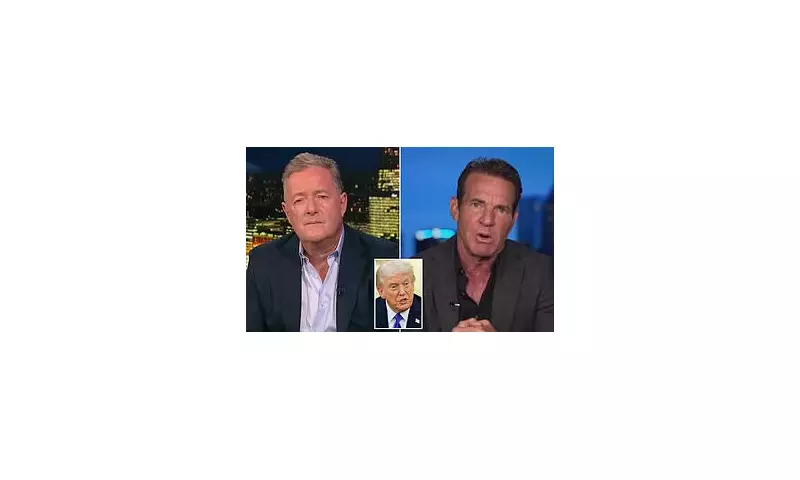
In a remarkably candid interview that's sending shockwaves through political and entertainment circles, veteran Hollywood actor Dennis Quaid has thrown his support behind former President Donald Trump while calling for significant immigration reforms.
Hollywood Star Breaks Political Ranks
The acclaimed actor, known for roles in The Parent Trap and The Day After Tomorrow, sat down with broadcaster Piers Morgan for what became an unexpectedly political discussion. Quaid didn't hold back in his assessment of Trump's presidency, describing him as "very accessible" and praising his unconventional approach to leadership.
"He's not a politician, and I think that's what people liked about him," Quaid asserted, challenging the conventional Hollywood narrative that typically leans liberal.
Citizenship Pathway Proposal
Perhaps more surprising than his Trump endorsement was Quaid's passionate argument for immigration reform. The actor proposed a radical simplification of the citizenship process, suggesting that immigrants who have lived in the United States for an extended period should have a clear path to legal status.
"If you've been here for five years, and you have a family, and you've been working, you're not going back, so you might as well become a citizen," Quaid stated, framing his position as both practical and humane.
Political Independence in Tinseltown
Quaid's comments represent a significant departure from the typically uniform political landscape of Hollywood. The actor positioned himself as an independent thinker, unafraid to challenge the entertainment industry's prevailing political orthodoxy.
His interview with Morgan revealed a nuanced perspective on American politics, one that acknowledges the complexity of governance beyond partisan divides. Quaid's willingness to praise a Republican president while advocating for progressive immigration policies demonstrates a political independence rarely seen among A-list celebrities.
Broader Implications for Election Season
This interview arrives at a crucial moment in the American political cycle, potentially influencing undecided voters and challenging preconceptions about celebrity political allegiances. Quaid's endorsement carries particular weight given his decades-long career and mainstream appeal across generations.
The conversation also touches on one of the most contentious issues in American politics—immigration reform—at a time when border policies remain fiercely debated between political parties.
As the interview continues to generate discussion across media platforms, it raises important questions about the role of celebrities in political discourse and the value of cross-party dialogue in increasingly polarized times.





